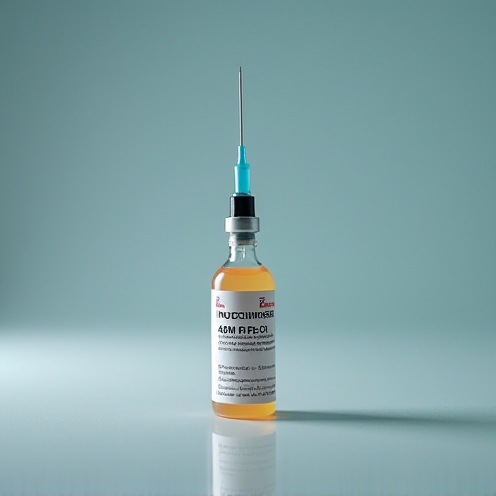Nispam 1gm Injection
Product Info
| Prescription required | Yes |
| Marketer | Neiss Labs Pvt Ltd |
| Active Ingredient | Pralidoxime (1gm) |
| Storage | Store below 30°C |
| Chemical Class | N-Methylpyridinium Compounds |
| Habit Forming | No |
| Therapeutic Class | OTHERS |
| Action Class | Cholinesterase regenerator |
| User Rating | 4.8 |
| User Reviews | 440 |
FAQ

How does Nispam 1gm work?
Nispam 1gm works by reactivating the enzyme acetylcholinesterase, which has been inactivated by pesticides or certain drugs, and breaks down the excess acetylcholine resulting from poisoning. Thus, it helps in reversing muscle weakness or respiratory depression caused by poisoning or drug over dosing.


What if you forget to take Nispam Injection?
If you miss a dose of Nispam 1gm, please consult your doctor.\n

Nispam 1gm Injection Reviews
Nispam 1gm is a prescription medicine used in the treatment of poisoning caused by pesticides and chemicals that contain organophosphates. It is used in the cases where respiratory depression occurs as a result of muscle weakness due to poisoning.
Nispam 1gm is administered in a medical emergency situation thus aim should be to seek treatment of poisoning without waiting for the results of laboratory tests. This injection is given under the supervision of a healthcare professional. Moreover, it is important to consult your doctor if you have abnormal heartbeat, difficulty or trouble with breathing, increased muscle weakness, or severe tiredness after receiving this medicine.
There can be some side effects like nausea, muscle weakness, headache, double vision, and blurred vision. It may also cause dizziness and sleepiness, so do not drive or do anything that requires mental focus until you will better. This medicine may also increase your blood pressure, so it is better to consult your doctor if it bothers you.
Nispam 1gm is administered in a medical emergency situation thus aim should be to seek treatment of poisoning without waiting for the results of laboratory tests. This injection is given under the supervision of a healthcare professional. Moreover, it is important to consult your doctor if you have abnormal heartbeat, difficulty or trouble with breathing, increased muscle weakness, or severe tiredness after receiving this medicine.
There can be some side effects like nausea, muscle weakness, headache, double vision, and blurred vision. It may also cause dizziness and sleepiness, so do not drive or do anything that requires mental focus until you will better. This medicine may also increase your blood pressure, so it is better to consult your doctor if it bothers you.
How Nispam 1gm Injection Works
Nispam 1gm reactivates the enzymes blocked by many pesticides (organophosphates). It is an antidote used in the poisoning of these pesticides.
How to Use Nispam 1gm Injection
Your doctor or nurse will give you this medicine. Kindly do not self administer.
Benefits of Nispam 1gm Injection
- In Organophosphate poisoning: Organophosphates are used as insecticides or medications. Symptoms of organophosphate poisoning include increased saliva and tear production, diarrhea, vomiting, small pupils, sweating, muscle tremors, and confusion. Nispam 1gm helps to undo the effects of organophosphate poisoning and to restore normal life functions. It is given as an injection by a doctor or nurse.
Uses of Nispam 1gm Injection
- Organophosphate poisoning
Nispam 1gm Injection Side Effects

Safety Tips
Breast feeding
CAUTION
Nispam 1gm should be used with caution during breastfeeding. Breastfeeding should be held until the treatment of the mother is completed and the drug is eliminated from her body.
Kidney
CAUTION
Nispam 1gm should be used with caution in patients with kidney disease. Dose adjustment of Nispam 1gm may be needed. Please consult your doctor.
Liver
CONSULT YOUR DOCTOR
There is limited information available on the use of Nispam 1gm in patients with liver disease. Please consult your doctor.
Driving
CONSULT YOUR DOCTOR
It is not known whether Nispam 1gm alters the ability to drive. Do not drive if you experience any symptoms that affect your ability to concentrate and react.
Alcohol
CONSULT YOUR DOCTOR
It is not known whether it is safe to consume alcohol with Nispam 1gm. Please consult your doctor.
Pregnancy
CONSULT YOUR DOCTOR
Nispam 1gm may be unsafe to use during pregnancy. Although there are limited studies in humans, animal studies have shown harmful effects on the developing baby. Your doctor will weigh the benefits and any potential risks before prescribing it to you. Please consult your doctor.
Quick Tips
- Nispam 1gm is given as an injection into veins, muscles or under the skin by a doctor only.
- It may cause temporary blurring of your vision. Do not drive or do anything that requires concentration until you know how it affects you.
- Your doctor will closely monitor your heart rate, blood pressure, breathing rate and oxygen level during the treatment.
- Your doctor will monitor you closely for a period of 72 hours after giving the medicine.
References
- Briggs GG, Freeman RK, editors. A Reference Guide to Fetal and Neonatal Risk: Drugs in Pregnancy and Lactation. 10th ed. Philadelphia, PA: Wolters Kluwer Health; 2015. pp. 1139-40.
- Drugs.com. Pralidoxime.
- Pralidoxime. Deerfield, IL: Baxter Healthcare Corporation; 2010.
- Central Drugs Standard Control Organisation (CDSCO).
